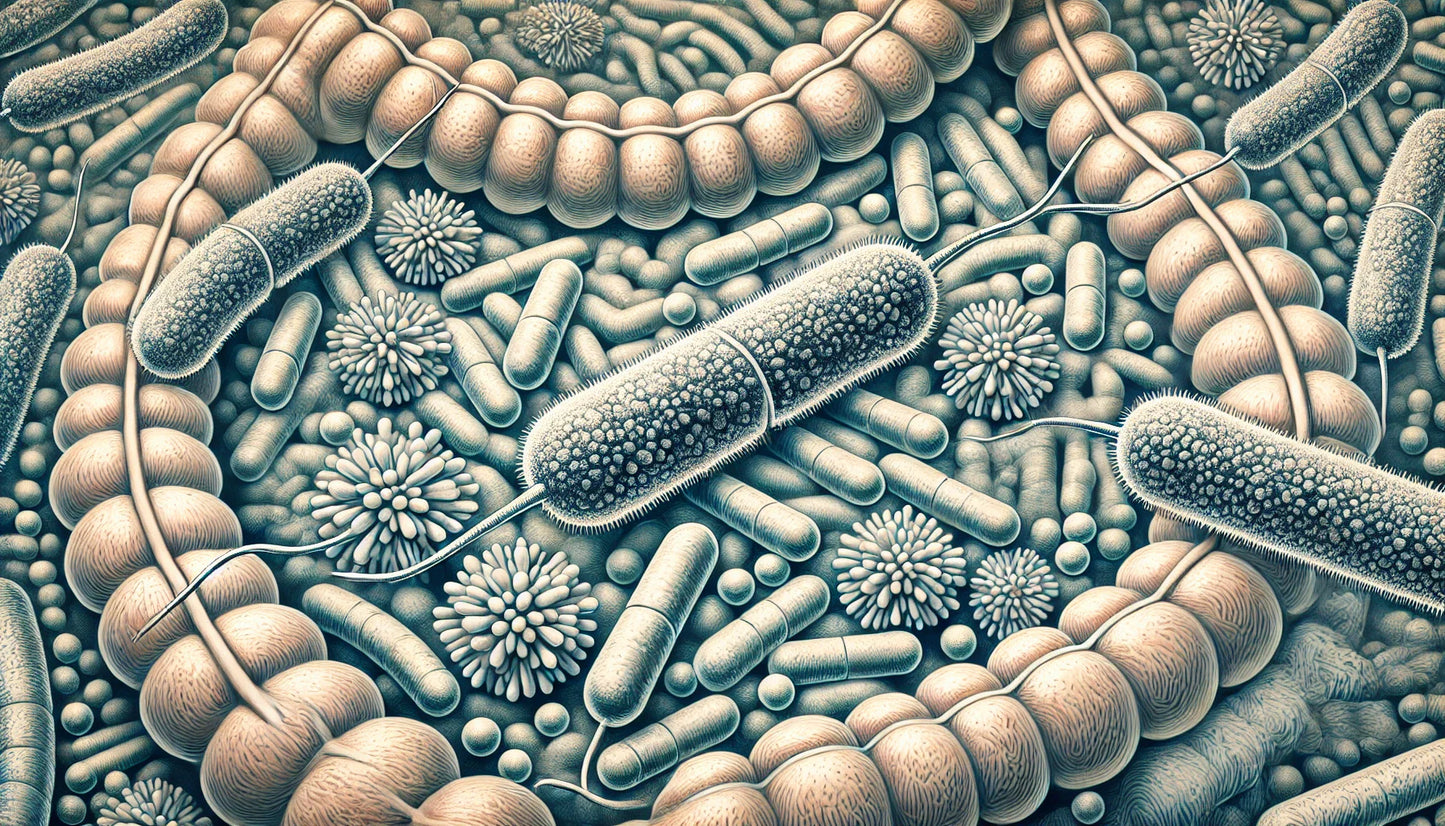
Short-Chain Fatty Acids (SCFAs): Why They Matter for Gut Health and Beyond
Short-chain fatty acids (SCFAs) are powerful compounds produced by the gut microbiome during the fermentation of dietary fiber. Far from being simple byproducts, SCFAs are critical messengers in the body—supporting gut health, regulating inflammation, influencing immune function, and even helping to manage appetite and metabolism.
What Are Short-Chain Fatty Acids (SCFAs)?
SCFAs—including acetate, propionate, and butyrate—are produced when beneficial gut bacteria break down fiber. These postbiotic compounds help maintain a balanced gut environment and communicate with cells throughout the body.
SCFAs and Gut Health
Gut health is foundational to overall well-being, and SCFAs play an essential role in maintaining it:
-
Fuel for Colon Cells
Butyrate serves as the main energy source for colonocytes (colon-lining cells), promoting tissue repair and maintaining a healthy intestinal barrier. -
Strengthening the Gut Barrier
SCFAs support the production of mucus and tighten the junctions between gut lining cells. This helps prevent “leaky gut,” a condition where toxins or bacteria can enter the bloodstream.
SCFAs Help Regulate Inflammation
Chronic inflammation is linked to numerous diseases, from autoimmune disorders to metabolic syndrome. SCFAs help modulate inflammatory pathways in the body:
-
Suppressing Inflammatory Signals
Butyrate inhibits the inflammatory protein complex NF-κB, which is often overactive in chronic conditions. -
Encouraging Anti-Inflammatory Cytokines
SCFAs stimulate immune cells to release anti-inflammatory compounds, promoting immune balance.
SCFAs and Immune Function
A large portion of the immune system is located in the gut. SCFAs are key to maintaining immune homeostasis:
-
Boosting Regulatory T Cells (Tregs)
Butyrate enhances the development of Tregs—immune cells that prevent excessive or inappropriate immune responses. -
Supporting GALT (Gut-Associated Lymphoid Tissue)
SCFAs promote the health and function of GALT, which helps the body distinguish between harmful pathogens and harmless substances.
SCFAs Influence Appetite and Metabolism
SCFAs not only affect the gut but also play a role in brain-gut communication and metabolic regulation:
-
Hormone Release
SCFAs stimulate hormones like peptide YY (PYY) and GLP-1, which increase satiety, regulate blood sugar, and improve insulin sensitivity. -
Metabolic Effects
Propionate influences glucose and fat metabolism in the liver, supporting balanced blood sugar and lipid levels.
How to Boost SCFA Production Naturally
To support the natural production of SCFAs in your gut:
-
Eat a diverse, fiber-rich diet (vegetables, legumes, whole grains)
-
Limit processed foods and refined sugars
-
Consider microbiome-supporting supplements like Chagaricus, which contains fermented, prebiotic-rich ingredients
Conclusion: SCFAs Are Essential to Whole-Body Health
Short-chain fatty acids are vital for maintaining gut health, reducing inflammation, supporting immunity, and regulating metabolism. They represent one of the most important links between the foods we eat, the microbes in our gut, and our overall health.
A fiber-rich diet and microbiome-conscious supplements can help you optimize SCFA production—and with it, your well-being.




